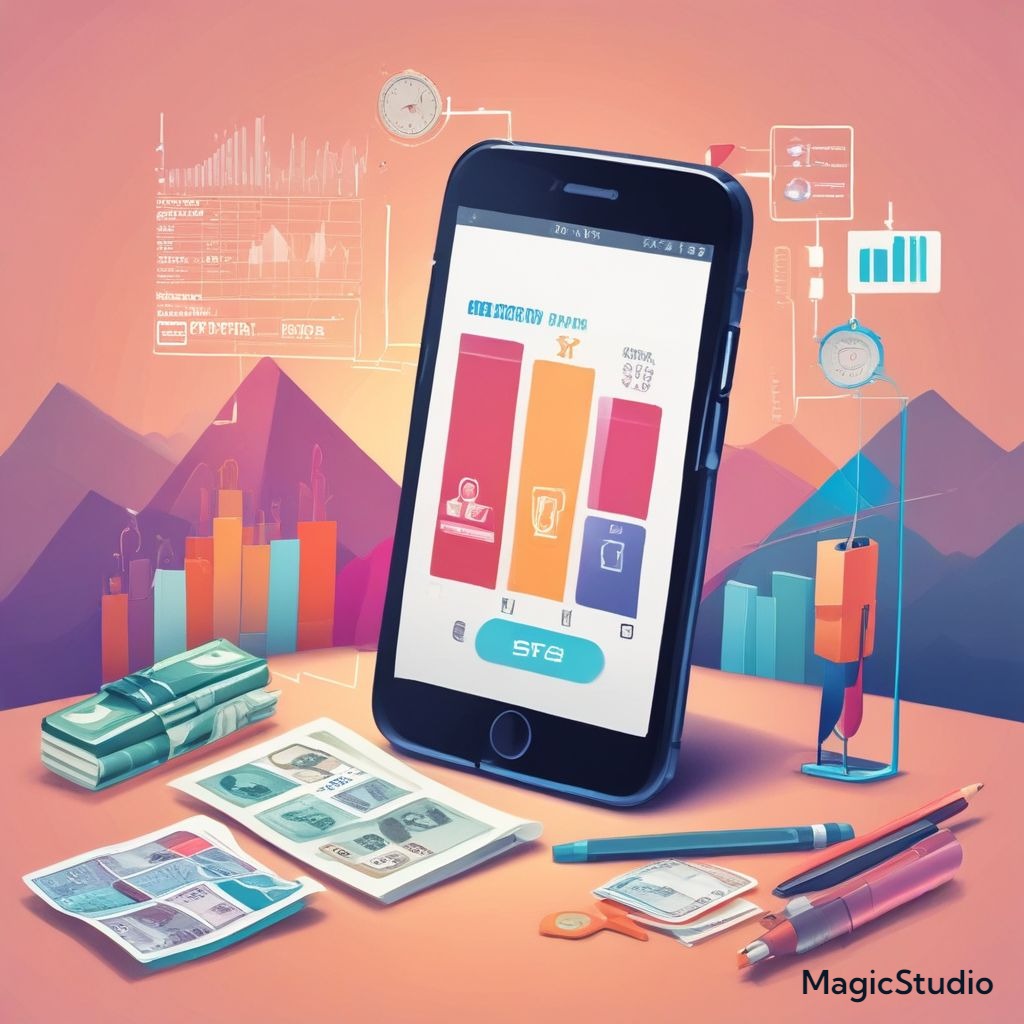In today’s fast-paced world, managing finances can feel overwhelming. With expenses piling up and financial goals often taking a backseat, the need for effective budgeting has never been more crucial. Fortunately, technology has come to the rescue with budgeting and financial tracking apps designed to simplify your financial management. Here’s why using these apps can transform your approach to budgeting and help you achieve your financial goals.
1. Enhanced Financial Awareness
One of the primary benefits of budgeting and financial tracking apps is that they provide a clearer picture of your financial health.
How It Works:
- Real-Time Tracking: These apps allow you to track your spending in real-time, categorizing expenses automatically. This visibility helps you understand where your money goes each month.
- Income Insights: Many apps also help you track income sources, giving you a complete overview of your cash flow.
By understanding your spending habits and income, you can make informed decisions about your finances.
2. Goal Setting and Progress Monitoring
Budgeting apps enable users to set specific financial goals, such as saving for a vacation, paying off debt, or building an emergency fund.
Benefits of Goal Setting:
- Visual Progress: Many apps feature progress bars and charts that visually represent your journey toward your financial goals, motivating you to stay on track.
- Alerts and Reminders: Set reminders for upcoming bills or milestones, ensuring that you never miss a payment or fall behind on your objectives.
Tracking your progress helps maintain focus and encourages discipline in your financial planning.
3. Time-Saving Automation
One of the most significant advantages of using budgeting apps is the automation they offer.
Key Features:
- Automatic Transactions: Many apps can connect to your bank accounts, automatically categorizing transactions and updating your budget. This automation reduces the time spent manually entering expenses.
- Recurring Expenses: You can easily input recurring bills (e.g., subscriptions, utilities) to ensure they’re accounted for in your budget, allowing you to plan your finances more accurately.
By saving time on administrative tasks, you can focus on strategizing and achieving your financial goals.
4. Better Expense Management
Managing your expenses becomes significantly easier with budgeting apps, which can help you identify spending patterns and areas for improvement.
Strategies for Better Management:
- Custom Categories: Most apps allow you to create custom expense categories, enabling you to tailor your budget to fit your unique lifestyle and spending habits.
- Alerts for Overspending: Set up alerts to notify you when you’re approaching your budget limits in specific categories, helping you curb unnecessary spending.
Improving expense management leads to better financial decisions and helps prevent overspending.
5. Informed Financial Decisions
Budgeting and financial tracking apps provide valuable insights that can aid in making informed financial decisions.
How They Help:
- Historical Data: Many apps analyze your historical spending patterns and generate reports, which can reveal trends and insights about your financial behavior.
- Recommendations: Some apps offer personalized tips and recommendations based on your financial data, helping you optimize your budgeting strategies.
With access to this information, you can adjust your spending and saving strategies to align with your long-term financial goals.
6. Increased Accountability
Using a budgeting app fosters a sense of accountability for your financial decisions.
Accountability Features:
- Shared Accounts: Some apps allow you to share your budget with family members or partners, encouraging teamwork in managing finances.
- Regular Check-Ins: Many apps prompt regular reviews of your budget, ensuring you consistently engage with your financial health.
Being accountable for your spending can encourage more responsible financial behaviors.
7. Financial Education and Literacy
Many budgeting and financial tracking apps offer educational resources that can enhance your financial literacy.
Educational Components:
- Blogs and Articles: Access articles, videos, and tips on budgeting, investing, and financial planning within the app.
- Workshops and Webinars: Some apps even provide live workshops or webinars to help users learn about managing finances effectively.
Improving your financial literacy empowers you to make smarter decisions and gain confidence in your financial planning.
8. User-Friendly Interfaces
Modern budgeting apps are designed with user experience in mind, making financial tracking accessible to everyone.
Features for Ease of Use:
- Intuitive Design: Most apps feature a simple, clean interface that is easy to navigate, even for those who are not tech-savvy.
- Mobile Accessibility: With mobile apps available, you can access your budget on the go, allowing you to make updates and check your financial status anytime, anywhere.
An intuitive design encourages consistent use and engagement with your budgeting process
